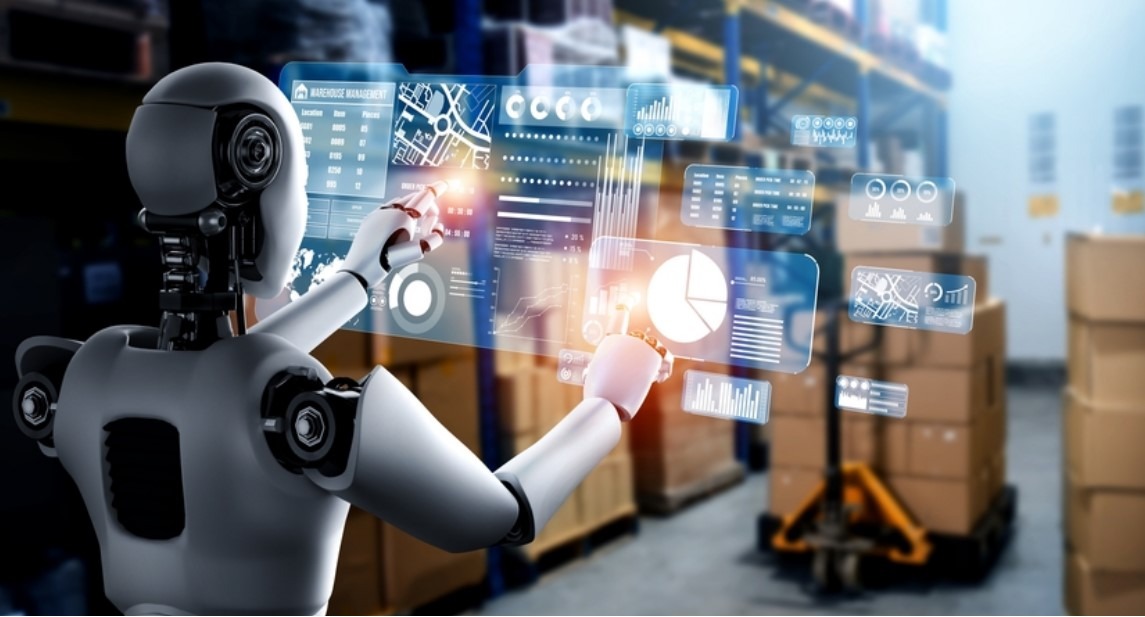
Speed in operations, speed in decision-making, speed in cutting cycle times, and speed in continual enhancement. In the times to come, AI in the supply chain will continue to make waves.
Supply chain enterprises anticipate a two-fold increase in the quantum of machine automation in their supply chain conditioning over the coming five times, according to Gartner. also, it’s anticipated that worldwide investment on IIoT platforms would increase from$1.67 billion in 2018 to$12.44 billion in 2024, growing at a 40 compound periodic growth rate( CAGR) during that time.
Maximizing productivity by lowering query is the top precedence across sectors in today’s connected digital world. The need for the sector to take advantage of artificial intelligence’s( AI) prowess in supply chains and logistics is further underlined by the rise in prospects of supersonic speed and efficiencies among suppliers and business mates of all kinds.
Artificial Intelligence( AI) in Supply Chains & Logistics Gaining Supply Chain Momentum
Supply chain AI is aiding in furnishing the potent optimization capabilities necessary for more precise capacity planning, higher effectiveness, high quality, lower costs, and lesser affair, all while promoting safer working conditions.
Establishing a thorough grasp of the effects on supply chains and contingency plans can help manufacturing organisations deal with uncertainty when faced with a pandemic like COVID- 19.
What does AI mean for companies that are trying to recover while putting supply chain edge first?
Artificial Intelligence( AI) in Logistics and Supply Chain
Business Benefits of AI in Supply Chains
1. Effective INVENTORY CONTROL
Benefits of Accurate Inventory Management in the Supply Chain
The proper inflow of goods into and out of a warehouse can be assured by accurate inventory management. Order processing, picking, and quilting are only a few of the numerous inventory- related variables that can be time- consuming and have a high vulnerability to error. also, effective inventory operation can aid in avoiding overstocking, inadequate stock, and unexpected stock- outs.
AI- driven systems can prove to be relatively successful in inventory operation due to their capacity to handle large quantities of data. Large datasets can be instantly analysed and interpreted by these intelligent systems, furnishing prompt advice on supply and demand predictions. These AI systems with clever algorithms can forecast seasonal demand and predict and identify new consumer patterns. This use of AI helps reduce the charges associated with overstocking uninvited goods while anticipating future client demand trends.
2. STORAGE EFICIENCY
An effective warehouse is a pivotal element of the supply chain, and automation can help with prompt item reclamation from warehouses and trouble-free delivery to customers. also, AI systems can expeditiously and directly resolve a variety of warehouse concerns, as well as streamline complex processes and increase productivity. AI- driven automation initiatives can also drastically cut the demand for and expenditure of warehouse workers in addition to saving important time.
3. AMPLIFYED SAFETY
Intelligent planning and effective warehouse operation are made possible by AI- based automated technologies, which can improve worker and material safety. AI may also examine data on workplace safety and alert manufacturers to any potential dangers. It can modernize operations, record stocking parameters, and perform essential feedback loops and precautionary maintenance. This enables manufacturers to respond snappily and strongly to maintain the safety and compliance of warehouses.
4. LESS EXPENSIVE OPERATIONS
Benefits of AI in Supply Chain Lower Operating Costs
The supply chain can greatly benefit from AI systems in this regard. Automated intelligent processes can operate without errors for a longer period of time, decreasing the amount of errors and workplace incidents, from customer service to the warehouse. With their increased speed and accuracy, warehouse robots are more productive.
5. PROMPT DELIVERY
AI systems can help in reducing reliance on manual efforts, performing in a faster, safer, and more intelligent overall process. This makes it easier to fulfil the pledge of prompt delivery to the consumer. Traditional warehouse processes are accelerated by automated technologies, removing operational bottlenecks along the value chain with the least amount of effort to meet delivery deadlines.


